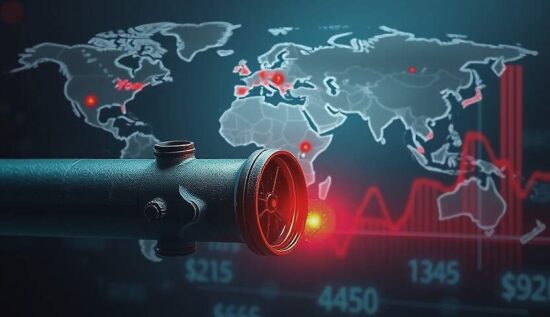The European Union’s gas market is once again on the brink of a crisis, with the potential for a repeat of the price surge seen in 2022. The losers in this scenario will be the traditional buyers of liquefied natural gas (LNG) – countries in the Global South, which cannot keep pace with the price rally triggered by the European Union.
Following the Ukraine’s decision to cut off gas supplies to the EU, new supply shortages are looming. The goal of replenishing gas reserves before the upcoming winter is under threat, as storage levels are declining due to the cold weather and the supply shortage triggered by the Ukraine. As a result, prices are rising.
“In Europe, there will certainly be an energy gap this year” said Francisco Blanch, a commodity strategist at Bank of America. “This means that all the additional LNG that comes on the market this year will be used to compensate for the deficit in Russian pipeline gas” he added.
To meet its gas demand, the EU is forced to import an additional 10 million tons of LNG this year, an increase of around 10 percent. However, it is unclear whether the US can rapidly increase its production of LNG for export to the EU, according to Saul Kavonic, an energy analyst at the Research Institute MST Marquee in Sydney.
As a result, it is once again expected that prices will rise. Countries like India, Bangladesh, and Egypt will struggle to meet their demand, as they are outcompeted by the EU in the price battle. Already, gas futures prices in Europe are 45 percent higher than last year.
In 2022, power outages and rationing of energy were seen in countries like Pakistan and Bangladesh, with the EU’s gas buying spree being blamed for the crisis. The affected countries did not hold Russia responsible, as Russia was still willing to supply gas. Instead, they blamed the countries that sought to boycott Russian gas, claiming it was disrupting the global energy market.
While Russia is also expanding its LNG production capacity, there are concerns that new US sanctions in this area will lead to delays. The uncertainties surrounding the situation remain significant.





